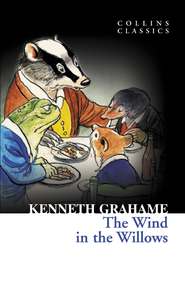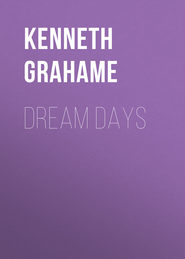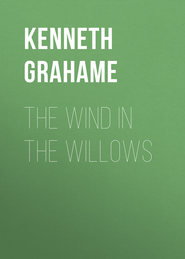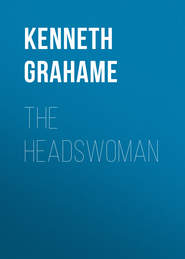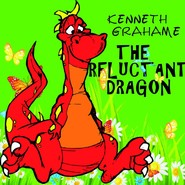По всем вопросам обращайтесь на: info@litportal.ru
(©) 2003-2025.
✖
The Golden Age
Настройки чтения
Размер шрифта
Высота строк
Поля
'I came up the stream,' I explained politely and comprehensively, 'and I was only looking for the Princess.'
'Then you are a water-baby,' he replied. 'And what do you think of the Princess, now you've found her?'
'I think she is lovely,' I said (and doubtless I was right, having never learned to flatter). 'But she's wide-awake, so I suppose somebody has kissed her!'
This very natural deduction moved the grown-up man to laughter; but the Princess, turning red and jumping up, declared that it was time for lunch.
'Come along, then,' said the grown-up man; 'and you too, water-baby. Come and have something solid. You must want it.'
I accompanied them without any feeling of false delicacy. The world, as known to me, was spread with food each several mid-day, and the particular table one sat at seemed a matter of no importance. The palace was very sumptuous and beautiful, just what a palace ought to be; and we were met by a stately lady, rather more grown-up than the Princess – apparently her mother. My friend the Man was very kind, and introduced me as the Captain, saying I had just run down from Aldershot. I didn't know where Aldershot was, but I had no manner of doubt that he was perfectly right. As a rule, indeed, grown-up people are fairly correct on matters of fact; it is in the higher gift of imagination that they are so sadly to seek.
The lunch was excellent and varied. Another gentleman in beautiful clothes – a lord presumably – lifted me into a high carved chair, and stood behind it, brooding over me like a Providence. I endeavoured to explain who I was and where I had come from, and to impress the company with my own toothbrush and Harold's tables; but either they were stupid – or is it a characteristic of Fairyland that every one laughs at the most ordinary remarks? My friend the Man said good-naturedly, 'All right, Water-baby; you came up the stream, and that's good enough for us.' The lord – a reserved sort of man, I thought – took no share in the conversation.
After lunch I walked on the terrace with the Princess and my friend the Man, and was very proud. And I told him what I was going to be, and he told me what he was going to be; and then I remarked, 'I suppose you two are going to get married?' He only laughed, after the Fairy fashion. 'Because if you aren't,' I added, 'you really ought to': meaning only that a man who discovered a Princess, living in the right sort of Palace like this, and didn't marry her there and then, was false to all recognised tradition.
They laughed again, and my friend suggested I should go down to the pond and look at the gold-fish, while they went for a stroll. I was sleepy, and assented; but before they left me, the grown-up man put two half-crowns in my hand, for the purpose, he explained, of treating the other water-babies. I was so touched by this crowning mark of friendship that I nearly cried; and I thought much more of his generosity than of the fact that the Princess, ere she moved away, stooped down and kissed me.
I watched them disappear down the path – how naturally arms seem to go round waists in Fairyland! – and then, my cheek on the cool marble, lulled by the trickle of water, I slipped into dreamland out of real and magic world alike. When I woke, the sun had gone in, a chill wind set all the leaves a-whispering, and the peacock on the lawn was harshly calling up the rain. A wild unreasoning panic possessed me, and I sped out of the garden like a guilty thing, wriggled through the rabbit-run, and threaded my doubtful way homewards, hounded by nameless terrors. The half-crowns happily remained solid and real to the touch; but could I hope to bear such treasure safely through the brigand-haunted wood? It was a dirty, weary little object that entered its home, at nightfall, by the unassuming aid of the scullery-window: and only to be sent tealess to bed seemed infinite mercy to him. Officially tealess, that is; for, as was usual after such escapades, a sympathetic housemaid, coming delicately by backstairs, stayed him with chunks of cold pudding and condolence, till his small skin was tight as any drum. Then, nature asserting herself, I passed into the comforting kingdom of sleep, where, a golden carp of fattest build, I oared it in translucent waters with a new half-crown snug under right fin and left; and thrust up a nose through water-lily leaves to be kissed by a rose-flushed Princess.
SAWDUST AND SIN
A BELT of rhododendrons grew close down to one side of our pond; and along the edge of it many things flourished rankly. If you crept through the undergrowth and crouched by the water's rim, it was easy – if your imagination were in healthy working order – to transport yourself in a trice to the heart of a tropical forest. Overhead the monkeys chattered, parrots flashed from bough to bough, strange large blossoms shone all round you, and the push and rustle of great beasts moving unseen thrilled you deliciously. And if you lay down with your nose an inch or two from the water, it was not long ere the old sense of proportion vanished clean away. The glittering insects that darted to and fro on its surface became sea-monsters dire, the gnats that hung above them swelled to albatrosses, and the pond itself stretched out into a vast inland sea, whereon a navy might ride secure, and whence at any moment the hairy scalp of a sea-serpent might be seen to emerge.
It is impossible, however, to play at tropical forests properly, when homely accents of the human voice intrude; and all my hopes of seeing a tiger seized by a crocodile while drinking (vide picture-books, passim) vanished abruptly, and earth resumed her old dimensions, when the sound of Charlotte's prattle somewhere hard by broke in on my primæval seclusion. Looking out from the bushes, I saw her trotting towards an open space of lawn the other side the pond, chattering to herself in her accustomed fashion, a doll tucked under either arm, and her brow knit with care. Propping up her double burthen against a friendly stump, she sat down in front of them, as full of worry and anxiety as a Chancellor on a Budget night.
Her victims, who stared resignedly in front of them, were recognisable as Jerry and Rosa. Jerry hailed from far Japan: his hair was straight and black, his one garment cotton of a simple blue; and his reputation was distinctly bad. Jerome was his proper name, from his supposed likeness to the holy man who hung in a print on the staircase; though a shaven crown was the only thing in common 'twixt Western saint and Eastern sinner. Rosa was typical British, from her flaxen poll to the stout calves she displayed so liberally; and in character she was of the blameless order of those who have not yet been found out.
I suspected Jerry from the first. There was a latent devilry in his slant eyes as he sat there moodily; and knowing what he was capable of, I scented trouble in store for Charlotte. Rosa I was not so sure about; she sat demurely and upright, and looked far away into the tree-tops in a visionary, world-forgetting sort of way; yet the prim purse of her mouth was somewhat overdone, and her eyes glittered unnaturally.
'Now, I'm going to begin where I left off,' said Charlotte, regardless of stops, and thumping the turf with her fist excitedly: 'and you must pay attention, 'cos this is a treat, to have a story told you before you're put to bed. Well, so the White Rabbit scuttled off down the passage and Alice hoped he'd come back 'cos he had a waistcoat on and her flamingo flew up a tree – but we haven't got to that part yet, you must wait a minute, and – where had I got to?'
Jerry only remained passive until Charlotte had got well under way, and then began to heel over quietly in Rosa's direction. His head fell on her plump shoulder, causing her to start nervously.
Charlotte seized and shook him with vigour. 'O Jerry,' she cried piteously, 'if you're not going to be good, how ever shall I tell you my story?'
Jerry's face was injured innocence itself. 'Blame if you like, Madam,' he seemed to say, 'the eternal laws of gravitation, but not a helpless puppet, who is also an orphan and a stranger in the land.'
'Now we'll go on,' began Charlotte once more. 'So she got into the garden at last – I've left out a lot but you won't care, I'll tell you some other time – and they were all playing croquet, and that's where the flamingo comes in, and the Queen shouted out, "Off with her head!"'
At this point Jerry collapsed forward, suddenly and completely, his bald pate between his knees. Charlotte was not very angry this time. The sudden development of tragedy in the story had evidently been too much for the poor fellow. She straightened him out, wiped his nose, and, after trying him in various positions, to which he refused to adapt himself, she propped him against the shoulder of the (apparently) unconscious Rosa. Then my eyes were opened, and the full measure of Jerry's infamy became apparent. This, then, was what he had been playing up for! The rascal had designs, had he? I resolved to keep him under close observation.
'If you'd been in the garden,' went on Charlotte reproachfully, 'and flopped down like that when the Queen said "Off with his head!" she'd have offed with your head; but Alice wasn't that sort of girl at all. She just said, "I'm not afraid of you, you're nothing but a pack of cards" – O dear! I've got to the end already, and I hadn't begun hardly! I never can make my stories last out! Never mind, I'll tell you another one.'
Jerry didn't seem to care, now he had gained his end, whether the stories lasted out or not. He was nestling against Rosa's plump form with a look of satisfaction that was simply idiotic; and one arm had disappeared from view – was it round her waist? Rosa's natural blush seemed deeper than usual, her head inclined shyly – it must have been round her waist.
'If it wasn't so near your bedtime,' continued Charlotte reflectively, 'I'd tell you a nice story with a bogy in it. But you'd be frightened, and you'd dream of bogies all night. So I'll tell you one about a White Bear, only you mustn't scream when the bear says 'Wow,' like I used to, 'cos he's a good bear really – '
Here Rosa fell flat on her back in the deadest of faints. Her limbs were rigid, her eyes glassy. What had Jerry been doing? It must have been something very bad, for her to take on like that. I scrutinised him carefully, while Charlotte ran to comfort the damsel. He appeared to be whistling a tune and regarding the scenery. If I only possessed Jerry's command of feature, I thought to myself, half regretfully, I would never be found out in anything.
'It's all your fault, Jerry,' said Charlotte reproachfully, when the lady had been restored to consciousness: 'Rosa's as good as gold except when you make her wicked. I'd put you in the corner, only a stump hasn't got a corner – wonder why that is? Thought everything had corners. Never mind, you'll have to sit with your face to the wall – so. Now you can sulk if you like!'
Jerry seemed to hesitate a moment between the bliss of indulgence in sulks with a sense of injury, and the imperious summons of beauty waiting to be wooed at his elbow; then, over-mastered by his passion, he fell sideways across Rosa's lap. One arm stuck stiffly upwards, as in passionate protestation; his amorous countenance was full of entreaty. Rosa hesitated – wavered – yielded, crushing his slight frame under the weight of her full-bodied surrender.
Charlotte had stood a good deal, but it was possible to abuse even her patience. Snatching Jerry from his lawless embraces, she reversed him across her knee, and then – the outrage offered to the whole superior sex in Jerry's hapless person was too painful to witness; but though I turned my head away the sound of brisk slaps continued to reach my tingling ears. When I dared to look again, Jerry was sitting up as before; his garment, somewhat crumpled, was restored to its original position; but his pallid countenance was set hard. Knowing as I did, only too well, what a volcano of passion and shame must be seething under that impassive exterior, for the moment I felt sorry for him.
Rosa's face was still buried in her frock; it might have been shame, it might have been grief for Jerry's sufferings. But the callous Japanese never even looked her way. His heart was exceeding bitter within him. In merely following up his natural impulses he had run his head against convention, and learned how hard a thing it was; and the sunshiny world was all black to him. Even Charlotte softened somewhat at the sight of his rigid misery. 'If you'll say you're sorry, Jerome,' she said, 'I'll say I'm sorry, too.'
Jerry only dropped his shoulders against the stump and stared out in the direction of his dear native Japan, where love was no sin, and smacking had not been introduced. Why had he ever left it? He would go back to-morrow! And yet there were obstacles: another grievance. Nature, in endowing Jerry with every grace of form and feature, along with a sensitive soul, had somehow forgotten the gift of locomotion.
There was a crackling in the bushes behind me, with sharp short pants as of a small steam-engine, and Rollo, the black retriever, just released from his chain by some friendly hand, burst through the underwood, seeking congenial company. I joyfully hailed him to stop and be a panther, but he sped away round the pond, upset Charlotte with a boisterous caress, and seizing Jerry by the middle, disappeared with him down the drive. Charlotte panting, raved behind the swift-footed avenger of crime; Rosa lay dishevelled, bereft of consciousness; Jerry himself spread helpless arms to heaven, and I almost thought I heard a cry for mercy, a tardy promise of amendment. But it was too late. The Black Man had got Jerry at last; and though the tear of sensibility might bedew an eye or two for his lost sake, no one who really knew him could deny the justice of his fate.
'YOUNG ADAM CUPID'
NOBODY would have suspected Edward of being in love, had it not been that after breakfast, with an overacted carelessness, 'Anybody who likes,' he said, 'can feed my rabbits,' and he disappeared, with a jauntiness that deceived nobody, in the direction of the orchard. Now kingdoms might totter and reel, and convulsions play skittles with the map of Europe; but the iron unwritten law prevailed, that each boy severely fed his own rabbits. There was good ground, then, for suspicion and alarm; and while the lettuce leaves were being drawn through the wires, Harold and I conferred seriously on the situation.
It may be thought that the affair was none of our business; and indeed we cared little as individuals. We were only concerned as members of a corporation, for each of whom the mental or physical ailment of one of his fellows might have far-reaching effects. It was thought best that Harold, as least open to suspicion of motive, should be despatched to probe and peer. His instructions were, to proceed by a report on the health of our rabbits in particular; to glide gently into a discussion concerning rabbits in general, their customs, practices, and vices; and to pass thence, by a natural transition, to the female sex, the inherent flaws in its composition, and the reasons for regarding it (speaking broadly) as dirt. He was especially to be very diplomatic, and then to return and report progress. He departed on his mission gaily; but his absence was short, and his return, discomfited and in tears, seemed to betoken some want of parts for diplomacy. He had found Edward, it appeared, pacing the orchard, with the sort of set smile that mountebanks wear in their precarious antics, fixed painfully on his face, as with pins. Harold had opened well, on the rabbit subject, but, with a fatal confusion between the abstract and the concrete, had then gone on to remark that Edward's lop-eared doe, with her long hindlegs and contemptuous twitch of the nose, always reminded him of Sabina Larkin (a nine-year-old damsel, child of a neighbouring farmer): at which point Edward, it would seem, had turned upon and savagely maltreated him, twisting his arm and punching him in the short ribs. So that Harold returned to the rabbit-hutches preceded by long-drawn wails: anon wishing, with tears and sobs, that he were a man, to kick his love-lorn brother; anon lamenting that ever he had been born.
I was not big enough to stand up to Edward personally, so I had to console the sufferer by allowing him to grease the wheels of the donkey-cart – a luscious treat that had been specially reserved for me, a week past, by the gardener's boy, for putting in a good word on his behalf with the new kitchen-maid. Harold was soon all smiles and grease; and I was not, on the whole, dissatisfied with the significant hint that had been gained as to the fons et origo mali.
Fortunately, means were at hand for resolving any doubts on the subject, since the morning was Sunday, and already the bells were ringing for church. Lest the connexion may not be evident at first sight, I should explain that the gloomy period of church-time, with its enforced inaction and its lack of real interest – passed, too, within sight of all that the village held of fairest – was just the one when a young man's fancies lightly turned to thoughts of love. The rest of the week afforded no leisure for such trifling; but in church – well, there was really nothing else to do! True, noughts-and-crosses might be indulged in on flyleaves of prayer-books while the Litany dragged its slow length along; but what balm or what solace could be found for the Sermon? Naturally the eye, wandering here and there among the serried ranks, made bold untrammelled choice among our fair fellow-supplicants. It was in this way that, some months earlier, under the exceptional strain of the Athanasian Creed, my roving fancy had settled upon the baker's wife as a fit object for a life-long devotion. Her riper charms had conquered a heart which none of her be-muslined tittering juniors had been able to subdue; and that she was already wedded had never occurred to me as any bar to my affection. Edward's general demeanour, then, during morning service was safe to convict him; but there was also a special test for the particular case. It happened that we sat in a transept, and, the Larkins being behind us, Edward's only chance of feasting on Sabina's charms was in the all-too fleeting interval when we swung round eastwards. I was not mistaken. During the singing of the Benedictus the impatient one made several false starts, and at last he slewed fairly round before 'As it was in the beginning, is now, and ever shall be' was half finished. The evidence was conclusive: a court of law could have desired no better.
The fact being patent, the next thing was to grapple with it; and my mind was fully occupied during the sermon. There was really nothing unfair or unbrotherly in my attitude. A philosophic affection such as mine own, which clashed with nothing, was (I held) permissible; but the volcanic passions in which Edward indulged about once a quarter were a serious interference with business. To make matters worse, next week there was a circus coming to the neighbourhood, to which we had all been strictly forbidden to go; and without Edward no visit in contempt of law and orders could be successfully brought off. I had sounded him as to the circus on our way to church, and he had replied briefly that the very thought of a clown made him sick. Morbidity could no further go. But the sermon came to an end without any line of conduct having suggested itself; and I walked home in some depression, feeling sadly that Venus was in the ascendant and in direful opposition, while Auriga – the circus star – drooped declinant, perilously near the horizon.
By the irony of fate, Aunt Eliza, of all people, turned out to be the Dea ex machinâ. The thing fell out in this wise. It was that lady's obnoxious practice to issue forth, of a Sunday afternoon, on a visit of state to such farmers and cottagers as dwelt at hand; on which occasion she was wont to hale a reluctant boy along with her, from the mixed motives of propriety and his soul's health. Much cudgelling of brains, I suppose, had on that particular day made me torpid and unwary. Anyhow, when a victim came to be sought for, I fell an easy prey, while the others fled scatheless and whooping. Our first visit was to the Larkins. Here ceremonial might be viewed in its finest flower, and we conducted ourselves, like Queen Elizabeth when she trod the measure, 'high and disposedly.' In the low oak-panelled parlour cake and currant wine were set forth, and, after courtesies and compliments exchanged, Aunt Eliza, greatly condescending, talked the fashions with Mrs. Larkin; while the farmer and I, perspiring with the unusual effort, exchanged remarks on the mutability of the weather and the steady fall in the price of corn. (Who would have thought, to hear us, that only two short days ago we had confronted each other on either side of a hedge? I triumphant, provocative, derisive? He flushed, wroth, cracking his whip, and volleying forth profanity? So powerful is all-subduing ceremony!) Sabina the while, demurely seated with a Pilgrim's Progress on her knee, and apparently absorbed in a brightly-coloured presentment of 'Apollyon Straddling Right across the Way,' eyed me at times with shy interest; but repelled all Aunt Eliza's advances with a frigid politeness for which I could not sufficiently admire her.
'It's surprising to me,' I heard my aunt remark presently, 'how my eldest nephew, Edward, despises little girls. I heard him tell Charlotte the other day that he wished he could exchange her for a pair of Japanese guinea-pigs. It made the poor child cry. Boys are so heartless!' (I saw Sabina stiffen as she sat, and her tip-tilted nose twitched scornfully.) 'Now this boy here – ' (my soul descended into my very boots. Could the woman have intercepted any of my amorous glances at the baker's wife?) 'Now this boy,' my aunt went on, 'is more human altogether. Only yesterday he took his sister to the baker's shop, and spent his only penny buying her sweets. I thought it showed such a nice disposition. I wish Edward were more like him!'
I breathed again. It was unnecessary to explain my real motives for that visit to the baker's. Sabina's face softened, and her contemptuous nose descended from its altitude of scorn; she gave me one shy glance of kindness, and then concentrated her attention upon Mercy knocking at the Wicket Gate. I felt awfully mean as regarded Edward; but what could I do? I was in Gaza, gagged and bound; the Philistines hemmed me in.
The same evening the storm burst, the bolt fell, and – to continue the metaphor – the atmosphere grew serene and clear once more. The evening service was shorter than usual, the vicar, as he ascended the pulpit steps, having dropped two pages out of his sermon-case – unperceived by any but ourselves, either at the moment or subsequently when the hiatus was reached; so, as we joyfully shuffled out I whispered Edward that by racing home at top speed we should make time to assume our bows and arrows (laid aside for the day) and play at Indians and buffaloes with Aunt Eliza's fowls – already strolling roostwards, regardless of their doom – before that sedately stepping lady could return. Edward hung at the door, wavering; the suggestion had unhallowed charms. At that moment Sabina issued primly forth, and, seeing Edward, put out her tongue at him in the most exasperating manner conceivable; then passed on her way, her shoulders rigid, her dainty head held high. A man can stand very much in the cause of love: poverty, aunts, rivals, barriers of every sort, all these only serve to fan the flame. But personal ridicule is a shaft that reaches the very vitals. Edward led the race home at a speed which one of Ballantyne's heroes might have equalled but never surpassed; and that evening the Indians dispersed Aunt Eliza's fowls over several square miles of country, so that the tale of them remaineth incomplete unto this day. Edward himself, cheering wildly, pursued the big Cochin-China cock till the bird sank gasping under the drawing-room window, whereat its mistress stood petrified; and after supper, in the shrubbery, smoked a half-consumed cigar he had picked up in the road, and declared to an awe-stricken audience his final, his immitigable resolve to go into the army.
The crisis was past, and Edward was saved!.. And yet.. sunt lachrymæ rerum.. to me watching the cigar-stump alternately pale and glow against the dark background of laurel, a vision of a tip-tilted nose, of a small head poised scornfully, seemed to hover on the gathering gloom – seemed to grow and fade and grow again, like the grin of the Cheshire cat – pathetically, reproachfully even; and the charms of the baker's wife slipped from my memory like snow-wreaths in thaw. After all, Sabina was nowise to blame: why should the child be punished? To-morrow I would give them the slip, and stroll round by her garden promiscuous-like, at a time when the farmer was safe in the rickyard. If nothing came of it, there was no harm done; and if on the contrary.. !
THE BURGLARS
IT was much too fine a night to think of going to bed at once, and so, although the witching hour of nine p. m. had struck, Edward and I were still leaning out of the open window in our nightshirts, watching the play of the cedar-branch shadows on the moonlit lawn, and planning schemes of fresh devilry for the sunshiny morrow. From below, strains of the jocund piano declared that the Olympians were enjoying themselves in their listless impotent way; for the new curate had been bidden to dinner that night, and was at the moment unclerically proclaiming to all the world that he feared no foe. His discordant vociferations doubtless started a train of thought in Edward's mind, for he presently remarked, à propos of nothing whatever that had been said before, 'I believe the new curate's rather gone on Aunt Maria.'
I scouted the notion; 'Why, she's quite old,' I said. (She must have seen some five-and-twenty summers.)
'Of course she is,' replied Edward scornfully. 'It's not her, it's her money he's after, you bet!'
'Didn't know she had any money,' I observed timidly.
'Sure to have,' said my brother with confidence. 'Heaps and heaps.'
Silence ensued, both our minds being busy with the new situation thus presented: mine, in wonderment at this flaw that so often declared itself in enviable natures of fullest endowment, – in a grown-up man and a good cricketer, for instance, even as this curate; Edward's (apparently) in the consideration of how such a state of things, supposing it existed, could be best turned to his own advantage.
'Bobby Ferris told me,' began Edward in due course, 'that there was a fellow spooning his sister once – '






